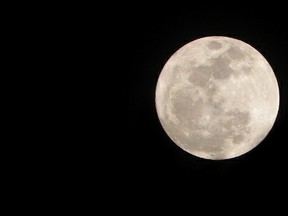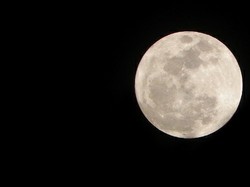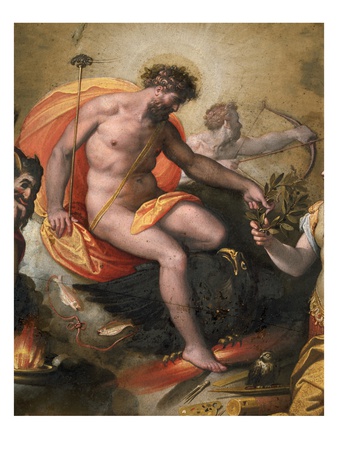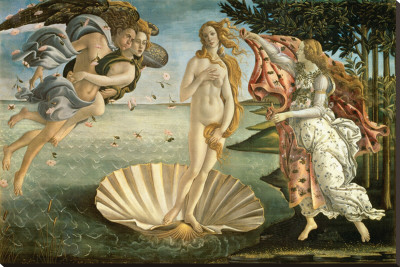I was taught about the origins of the names of the days of the week when I was at primary school. It obviously interested me, because I remember the lesson well, even now. It’s part of the whole evolution of language that fascinates me. As I learned other languages, I became even more fascinated about the inter-relationships between them. English is interesting because it has the Anglo-Saxon and Germanic origins, but also has some of the Latin influence. This article shows some of those influences and how so many of the same things affected the language.

Days of the Week
by Telesto
Have you ever wondered about the origins of the names of the days of the week? I was taught about the origins of the English names as a young child at school.
Monday, Lundi (Fr), Lunedi (It)
The name Monday comes from the Anglo-Saxon monandaeg and Middle English Monenday, meaning Moon Day. The Latin is lunae dies, the day of the moon. The origin is the same in the Romance languages. The Roman moon goddess was named Luna, Selene being the Greek moon Goddess (although Artemis and Hecate were also known as moon goddesses)).
In Judaism and Islam, Monday is traditionally a day for fasting, it’s considered auspicious. In Thailand, the colour yellow is associated with Mondays.

Tuesday, Mardi (Fr), Martedi (It)
In English, Tuesday is named after the Norse God Tyr, who was a god of War and Law. The Latin languages have a different derivation – it comes from the Roman God Mars – dies Martis – hence we get Mardi and martedi. Mars was also the God of War. In England, we have Shrove Tuesday – the last day before lent, where traditionally we eat pancakes. The idea is that we eat all the food in the larder before giving up something for lent. In French, Shrove Tuesday is known as Mardi Gras – Fat Tuesday. This is because traditionally, all the richer foods would be eaten before lent. Pink is the colour associated with Tuesdays in Thailand.

Wednesday, Mercredi (Fr), Mercoledi (It)
The English version originates from the Norse God Odin, known in Anglo-Saxon as Wodan or Woden, however, the Romans called it dies Mercurii, after the winged God Mercury. Wodan was the carrier of the dead; Mercury was a god of messages, but also abundance. In Portuguese, it is called quarta-feira, meaning "fourth day," which is what the Quakers call it. (To avoid any pagan association with the name.) In the Eastern Orthodox Church, Wednesday is a fast day. Green is associated with Wednesday’s in Thailand.
Thursday, Jeudi (Fr), Giovedi (It)
The Norse God Thor gives his name to the English day of the week, whilst in the Latin languages; it originates from the Roman dies Jovis, Joves’ Day. Jove, or Jupiter, was the most important God to the Romans; he was the God of sky and thunder. He was thought to be the king of the Gods. Thor is typically represented with a hammer in his hand, associated with the protection of mankind. This day is quinta-feira in Portuguese, fifth day, and, as in the preceding day, this is how it is known to Quakers. Thursday is the other day recommended for fasting in Islam and Judaism. Interestingly, in Australia, most cinema previews are held on a Thursday evening. In the UK, since 1935, all general elections have been held on a Thursday. In Thailand, the colour orange is associated with Thursday.
Friday, Vendredi (Fr), Venerdi (It)
The Old English called this frigedag, after the Norse Goddess Frigg, although I was taught her name was Freya. The Romans called it dies Veneris, dedicated to the Goddess Venus. Venus was believed by the Romans to be the mother of the Roman people through her son Aeneas. Frigg was the wife of Odin, associated with married women, and was called on to help married women in childbirth. In some cultures, Friday is considered unlucky, think of Friday 13th, and sailors believe it is unlucky to start a voyage on a Friday. Interesting that the most successful bomber in the Second World War was nicknamed Friday the 13th. Traditionally, in the Catholic Church, the eating of meat was not permitted; although this rule has been relaxed, many people still observe the rule. The colour blue is associated with Friday in Thailand.
Saturday, Samedi (Fr), Sabato (It)
Dies Saturni in Latin, and sater daeg in Anglo Saxon. It is the Sabbath in some religions, hence sabato in Italian. Saturn was associated with wealth and agriculture, and later time. He came to be associated with Chronos, the Greek God of Time. Interesting fact from folklore: Saturday was the favoured day to hunt vampires, as that was the day they didn’t leave their coffins! Purple is the colour associated with Saturday in Thailand.
Sunday, Dimanche (Fr), Domenica (It)
Quite simply, Sun’s Day, dies Solis in the Latin, but also Domenica – Day of God. It was Sunnandæg in the Old English. Traditionally the day of rest in the Christian world, the day on which the main worship takes place. Most government offices in the UK, Canada and the US are closed on both Saturdays and Sundays. In Thailand, red is the day associated with Sunday.
You might also like
Thinking about NalediThe new discoveries in the Rising Star cave in South Africa arouse questions ...
Shipwreck: the Edmund FitzgeraldBesides the song Wreck of the Edmund Fitzgerald, there's so much more about t...











 Identity Theft and How it Feelson 02/01/2015
Identity Theft and How it Feelson 02/01/2015
 Barts Hospital - a National Treasureon 01/24/2015
Barts Hospital - a National Treasureon 01/24/2015
 Urban Foxeson 01/11/2015
Urban Foxeson 01/11/2015
 How do you know which hosting platform to choose?on 01/03/2015
How do you know which hosting platform to choose?on 01/03/2015



Comments
Thank you CruiseReady, thanks for reading.
Very interesting. I saw the relationship with the Spanish names for the days of the week, too. Very close. Never knew about Thailand and colors for each day. That was interesting, too.
Mira, Frank, thank you both. That's one of the things I love about this site: I learn so much!
Hence the Wednesday of Holy Week is known as Spy Wednesday, after Judas Iscariot's actions.
According to Luke 22, "Then Satan entered Judas, called Iscariot, one of the Twelve."
Thank you Frank
Hi Mira, I didn't know the bit about Judaism betraying Jesus on a Wednesday! Interesting! Thank you for the info and your kind comments.
Hi Sheri_Oz. I found out about the fasting days when Michael Morley was doing his research into fasting; etc, but didn't know the Hebrew days of the week, so thank you.
This was interesting information.
The days for fasting here in the Christian Orthodox church are Wednesdays and Fridays. I learned today that it has to do with Judas betraying Jesus (Wed.) and the Crucifixion (Friday).
Interesting post! The days of the week in Romanian are
luni, marti, miercuri, joi, vineri, simbata, duminica (actually, luni, marți, miercuri, joi, vineri, sîmbătă, duminică) -- I never gave much thought to the etymology even though I'm sure I read about it at some point; so it was nice to find your article.